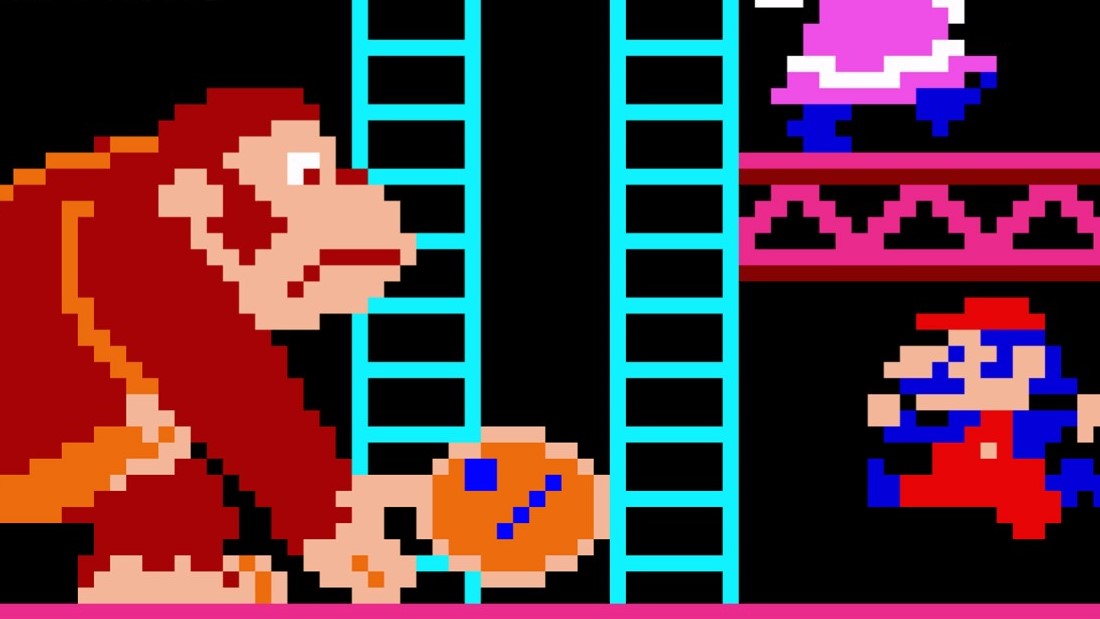1980s court documents show Nintendo considered 'Kong Dong' and 'Kong the Kong' before settling on the name Donkey Kong

Also: Funky Kong is sadly much more canon than we ever realised.
In the early 1980s Universal was looking to get in on the videogames market, and its hard-nosed president Sid Sheinberg particularly noted the success of Nintendo's Donkey Kong. Sheinberg was a lawyer by training and, looking at Donkey Kong, he saw a potential infringement on Universal's copyright for King Kong: nevermind the name, both had gorillas and a damsel in distress.
Sheinberg felt Universal was owed and began putting the squeeze on several videogame companies over King Kong, including Nintendo, but the Donkey Kong creator was the only one that didn't buckle. Instead Nintendo fought and, in a case that ran from 1982 with a final appeal in 1984, won a decisive victory: Donkey Kong did not infringe on Universal's copyright, and remained Nintendo's character.
As with any legal case on this scale, the documentation around it is voluminous and held in the National Archives. Several years ago gaming historian Norman Caruso visited the archives to look through, and posted scans of some curiosities he found therein (which were recently recirculated by Supper Mario Broth, and picked up by Eurogamer).
One amusing wrinkle about the case was that creator Shigeru Miyamoto, honest to perhaps a fault, admitted he'd considered the name King Kong at first, though this was offset by the argument that in Japan "kong" was used as a generic term for gorilla. Among Caruso's findings are a page of further alternative names that, per Nintendo, were considered as alternatives to Donkey Kong.
Funny Kong; Kong the Kong; Jack Kong; Funky Kong; Bill Kong; Steel Kong; Giant Kong; Big Kong; Kong Down; Kong Dong (!); Mr. Kong; Custom Kong; Kong Chase; Kong Boy; Kong Man; Kong Fighter; Wild Kong; Rookie Kong; Kong Holiday; and finally, Donkey Kong.
Kong Dong is the ludicrous suggestion that leaps out most, although the real stunner here is perhaps that Funky Kong, first introduced in Rare's Donkey Kong Country series, has roots going back further than I'd ever thought. There are many further tidbits in Caruso's posts, like this Miyamoto doodle of a bear, or the original 1933 copyright certificate for King Kong, though perhaps the prize find is Judge Sweet's summation of the differences between the two gorillas.
"Donkey Kong is comical and entertaining. The player tries to maneuver Mario the carpenter up a structure of pink girders by having him climb ladders and run up ramps, while avoiding cement tubs, barrels, beams and other obstacles. The goal of the games is to maneuver Mario to the top, where he can free a girl from the hands of a big gorilla. The farcical, childlike and nonsexual Donkey Kong creates a humerous [sic] impression by jumping up and down and strutting back and forth to tease Mario.
"The Donkey Kong gorilla is thus quite different from King Kong, a ferocious gorilla in quest of a beautiful woman who goes on rampages, chases people, crushes them underfoot, or throws them to the ground, and fights with dinosaurs, giant snakes, airplanes and helicopters, all culminating in his tragic and bloody death. Donkey Kong's silly obstacles of pies, cement tubs, birthday cakes and umbrellas, its prim captive girl with her hair in pigtails, and its pleasant colours and humorous sounds, create a totally different concept and feel from the drama of King Kong.
"At best, Donkey Kong is a parody of King Kong, but a parody of this sort is not an infringement."
Perhaps the less said about the "prim captive girl with her hair in pigtails" the better, but this is a brutally efficient summary of two fictional gorillas and their worlds, and I would even say you get the sense Judge Sweet quite enjoyed playing Donkey Kong ("pleasant colours and humorous sounds").
Nintendo would of course ultimately prevail, with Judge Sweet ruling that King Kong was public domain and Universal had brought the case to extract licensing fees, later ordering it to pay Nintendo $1.8 million in costs. Ironically enough, you can now visit Donkey Kong Land at a Universal theme park. This was a victory of enormous consequence in Nintendo's history, and indeed held in such esteem that one of its most-beloved characters ended up named after their lawyer: John Joseph Kirby.
